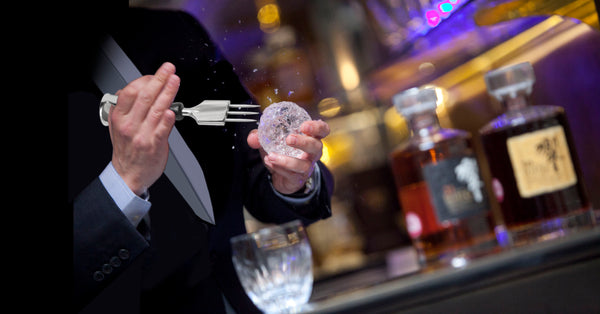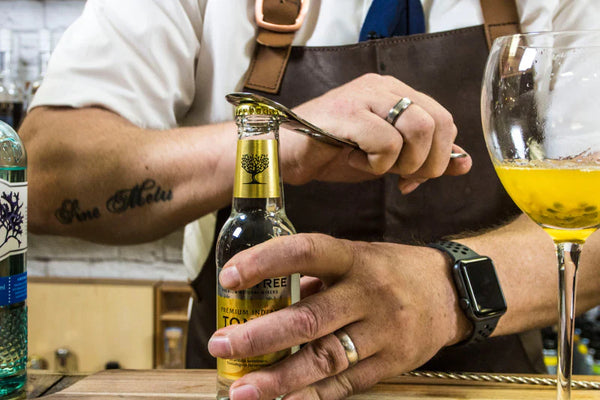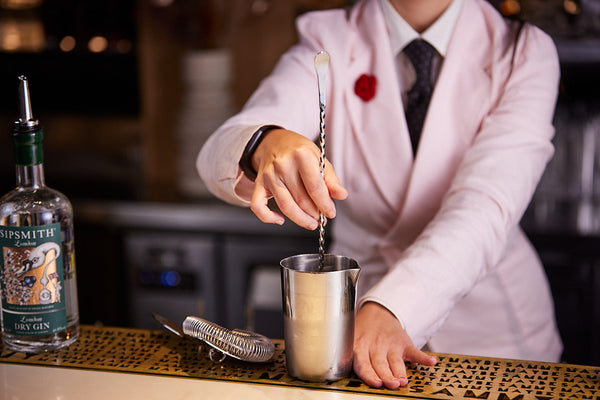
Think bartending isn't dangerous ? Think again!
It isn’t all charm and chat behind the bar. In fact, it’s actually a pretty hazardous place to work.
When you think about it, being surrounded by glass, sharp implements and slippery liquids is an accident waiting to happen. And, if you ask a bartender, it very often does.
For the not too squeamish amongst us, there are some real horror stories out there of bottles hitting heads and knocking bartenders out, entire shelves of booze collapsing and smashing to the floor, and even stirrer spoons puncturing all the way through a bartender’s hand.
But, putting the dramatic accidents aside, there are also some less exciting injuries that affect the health and safety of those working behind the bar.
The Perils of Shaking
We’ve talked before about the perils of shaking before and how it can wreak havoc on a bartender's body. Duane Fernandez is head bartender in a New York City bar who told ABC News he had to see chiropractors and acupuncturists for stress injuries.
"For me, it's the shake. If you don't shake correctly, it ruins your back alignment,” he says, and indeed physical therapists agree “that shaking a cocktail is similar to the motion of a baseball pitch or a tennis serve".
Even the less obvious culprits in the strain game are a force to be reckoned with. Take stirring – even if you don’t need to shake a cocktail, you’re likely going to need to stir it.
Willy Shine is a bar consultant who has tendonitis in his elbows, carpal tunnel in his wrists, and spine and heel issues – all from bartending.
“Over the course of 10 hours, his mixing spoons will make more than 5,000 rotations during the 50 minutes he spends stirring, irritating his wrists,” says The Washington Post.
Feeling the Strain
According to SafeWork NSW, "Over the past three years, more than 18,000 workers were injured in the NSW hospitality industry. Manual handling injuries, such as sprains and strains, account for about one-third of these injuries."
So, how best to avoid the strains of bar life?
A former bartender who is now an agility coach, Bryant Sharifi, reckons agility training will counter issues with repetitive strain behind the bar. “The motions involved in shaking and stirring hundreds of drinks a night heighten the risk of repetitive stress injuries, and can strengthen muscle groups while underworking others”, he told Tales of the Cocktail.
A sure fire way to ensure that bartenders are putting themselves under the least strain is by using the correct tools – ergonomically designed to remove the hard work, relieve the pressure and create more efficiency behind the bar.
All About the Ergo
Take muddling – it looks simple enough, but there's a whole lot of wrist and elbow action going on. Make 20 mojitos in a row and you'll start to feel it. The ProCrush™ has been ergonomically and specifically designed with this in mind!
The ProGrip handle allows for better grip with the thumb, supporting the wrist and making muddling easier. In fact it's a design that we've now extended to our ice tools for added comfort when ice sculpting too.

In fact, Überbartools™ has a whole range of bar tools that take some of the stress of the job away. The A-Swizz™, designed in collaboration with professional bartender Antonio Lai, helps to save the strain when making those cocktails that require a bit of a swizzle. And potentially save a trip to the physio too!
Check out our range of ergonomically designed bar tools and discover how you can save yourself some stress.



